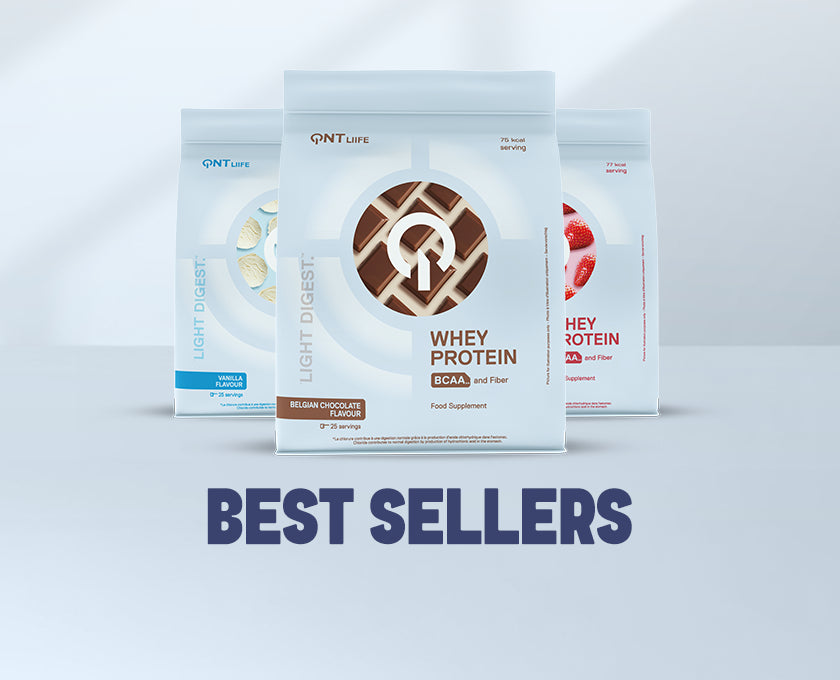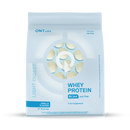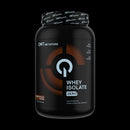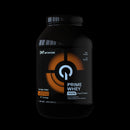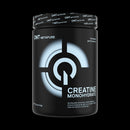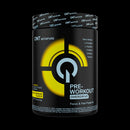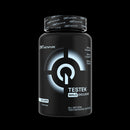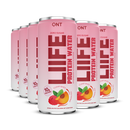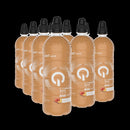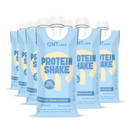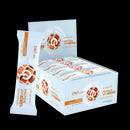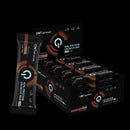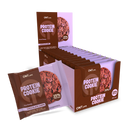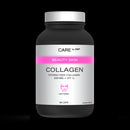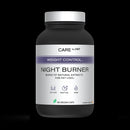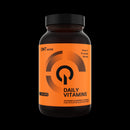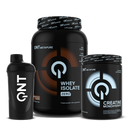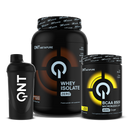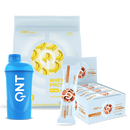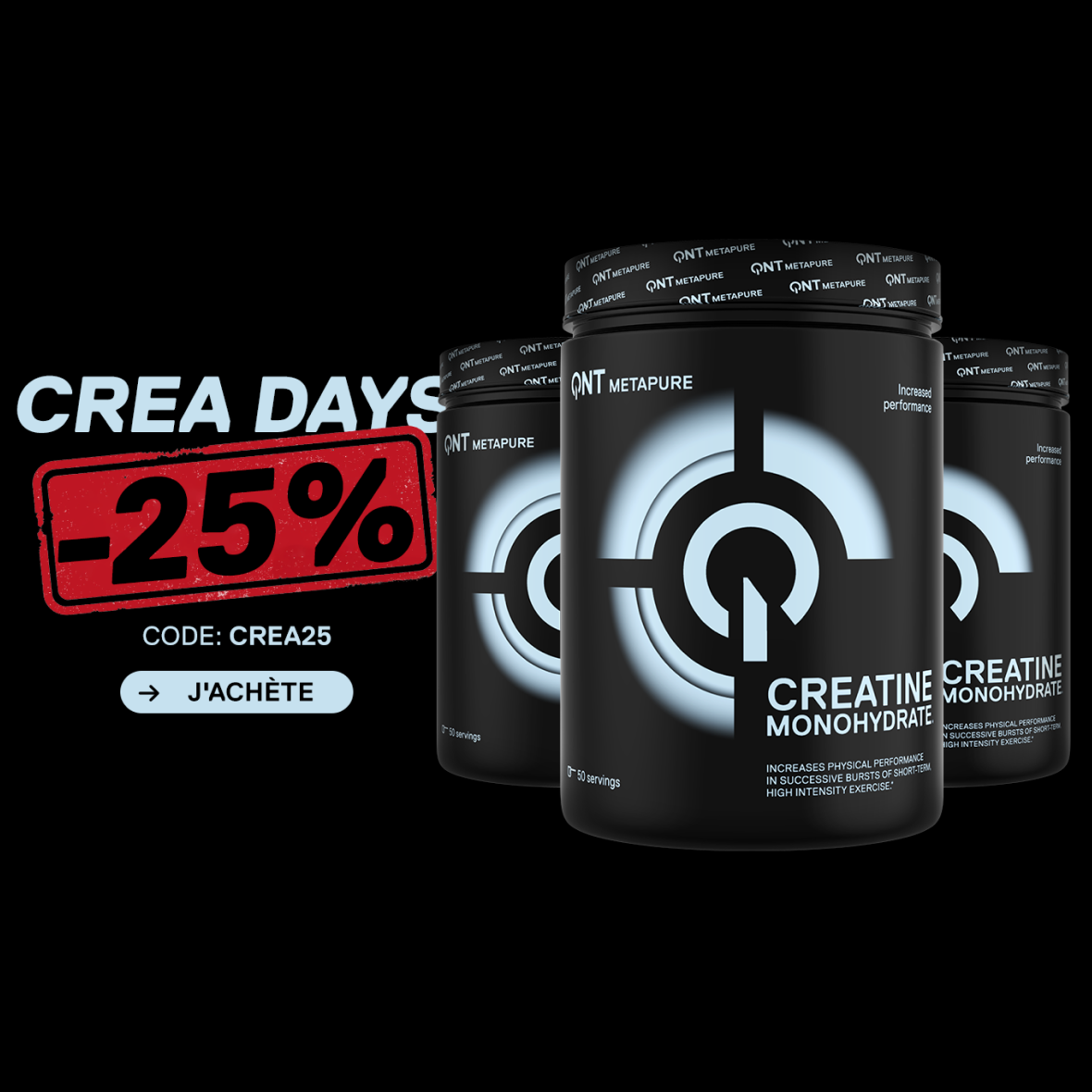Table of Contents
This article dives into the world of protein drinks, popular supplements among athletes and far beyond. You will learn why and how to consume them, whether to optimize recovery after training, support muscle mass gain, or simply supplement an insufficient protein intake. We also explore the differences between types of proteins (whey, casein, plant-based) to help you make an informed choice. For non-athletes, discover how these drinks can address specific needs such as weight management or muscle loss prevention. Finally, we analyze their potential as meal replacements, highlighting both their advantages and limitations. Whether you are curious or a regular user, this article will answer all your questions.
What is a Protein Drink?
A protein drink is a liquid product designed to supplement daily protein intake. These drinks are typically made from various protein sources, such as whey (whey), casein, soy, pea, or rice. They can come in the form of ready-to-drink pre-mixed shakes or powders to be mixed with water, milk, or a plant-based beverage.
Main Objectives:
Protein drinks are particularly valued for their ability to meet specific protein needs, including:
- For athletes: They support muscle recovery after exercise, promote muscle mass gain, and reduce soreness due to their richness in amino acids.
- For those aiming to lose weight: They help control appetite by increasing the feeling of fullness while maintaining muscle mass during a calorie deficit.
- For seniors or those recovering: They can compensate for a reduced appetite or insufficient protein intake due to specific needs.
Composition:
A protein drink may contain:
- Proteins: The content varies depending on the product, ranging from 10 to 30 g per serving.
- Vitamins and minerals: Some products are enriched to offer a complete nutritional profile.
- Carbohydrates and fats: Their quantity depends on the type of drink (for example, a drink designed for muscle gain will contain more carbohydrates).
- Flavors and sweeteners: To make the product more pleasant to taste, natural or artificial flavors are often added.
Who is it for?
Protein drinks are not just for athletes. They can be beneficial to anyone with increased protein needs, whether to support intense physical activity, complement a vegetarian diet, or meet specific needs during periods of growth, pregnancy, or recovery.
In summary, protein drinks are a practical and quick solution for incorporating high-quality protein into your diet, but they should not replace a balanced diet rich in natural foods.
What Are the Benefits of Protein Drinks?
Protein drinks offer a multitude of benefits, making them a popular supplement among athletes, health-conscious individuals, and those seeking to optimize their nutrition. Their protein-rich formulation, often combined with other essential nutrients, provides unique advantages in various contexts.
1. Promote muscle recovery after exercise.
After a workout, the muscles undergo micro-damage that requires nutrients to repair and strengthen. The proteins in these drinks, rich in essential amino acids like leucine, aid in the repair of muscle fibers. Consuming a protein drink quickly after exercise optimizes this process by providing readily absorbable nutrients.
2. Stimulate muscle growth.
Protein drinks are particularly effective at stimulating muscle protein synthesis, which is essential for muscle mass gain. They provide a concentrated dose of high-quality proteins, ideal for athletes aiming to build muscle. Whey, for instance, is known for its fast digestion, making it a preferred option post-workout.
3. Reduce hunger.
Thanks to their satiating effect, protein drinks help control appetite. Proteins slow digestion and reduce blood sugar spikes, prolonging the feeling of fullness after consumption. This is a valuable asset for individuals on a diet or those looking to avoid snacking between meals.
4. Support weight loss.
By promoting satiety and maintaining muscle mass, protein drinks play a key role in weight management. During a calorie-restricted diet, preserving muscle is crucial to avoid a drop in basal metabolism. Combining adequate protein intake with regular physical activity, these drinks contribute to healthy and sustainable weight loss.
5. Supplement insufficient protein intake.
For individuals with increased protein needs or difficulties consuming enough through their diet (e.g., vegetarians, the elderly, or those recovering from illness), protein drinks provide a practical and effective solution to fill this gap.
6. Convenience and speed.
Unlike traditional meals, protein drinks are ready to consume or easy to prepare, making them an ideal option for people with active lifestyles. They can be taken anywhere and consumed quickly, whether at work, after a workout, or on the go.
Protein drinks are not limited to athletes. Their convenience and numerous benefits make them a versatile tool for anyone looking to improve their nutritional intake, optimize performance, or achieve specific health goals. However, it is important to integrate them into a balanced diet tailored to individual needs.
When Should You Consume a Protein Drink?
The ideal time to consume a protein drink depends on your personal goals, physical activity, and nutritional needs. While these drinks are often associated with post-workout recovery, they can be integrated at various times of the day depending on their benefits.
1. After a workout: to optimize recovery.
The post-workout period, often called the "metabolic window," is one of the most strategic times to consume a protein drink. During this time, muscles are particularly receptive to nutrients, facilitating muscle repair and protein synthesis. A protein drink rich in essential amino acids provides the necessary elements to speed up recovery and reduce muscle soreness.
2. Between meals: to curb hunger.
Protein drinks are an excellent option for snacks. They help increase protein intake conveniently and avoid less healthy snacking. Thanks to their satiating effect, they help control appetite and maintain stable energy levels between meals while supporting muscle maintenance or growth.
3. In the morning: to start the day right.
For those in a rush or who struggle to have a complete breakfast, a protein drink can be a quick and balanced solution. It provides protein to jumpstart the metabolism and prevent mid-morning cravings.
4. Before a workout: for an energy boost.
While proteins are not the primary energy source during exercise, consuming a protein drink before a session can be beneficial. It prepares the muscles by providing the necessary amino acids for effort, especially if the drink also contains a small amount of carbohydrates for an energy boost.
5. Before bed: for sustained release.
Certain proteins, like casein, are digested slowly, making them ideal for consumption before bed. This nourishes the muscles throughout the night and prevents muscle catabolism (protein breakdown). This timing is particularly recommended for individuals looking to optimize long-term recovery.
6. During a diet: to maintain muscle mass.
When following a calorie-restricted diet to lose weight, consuming a protein drink at strategic times (such as after a workout or between meals) helps preserve muscle mass while promoting satiety.
To be tailored to your goals.
There is no universal rule for the ideal timing of protein drink consumption. Each individual can adapt their intake based on specific needs and schedules. Whether to optimize recovery, enhance satiety, or maintain muscle mass, these drinks can easily fit into a balanced daily routine.
Are Protein Drinks Effective for Muscle Mass Gain?
Protein drinks are recognized as a valuable tool for supporting muscle mass gain when combined with a structured training program and a balanced diet. Their high-quality protein content and convenience make them a popular choice among athletes and bodybuilding enthusiasts.
1. Supply of essential amino acids.
Proteins, composed of amino acids, are the building blocks of muscles. Protein drinks, especially those made with whey or other complete sources, provide all the essential amino acids required for muscle protein synthesis. Among them, leucine plays a key role in activating the muscle-building process.
2. Rapid absorption post-workout.
One of the major advantages of protein drinks is their rapid absorption. After physical activity, muscles enter a state of "catabolism" (muscle breakdown). Consuming a protein drink immediately after a workout can reverse this process by initiating muscle "anabolism" (building), thanks to a quick supply of nutrients.
3. Contribution to optimal daily protein intake.
To gain muscle mass, it is crucial to consume an adequate amount of protein daily. Protein drinks make this goal easier to achieve, especially for individuals who struggle to consume enough protein from solid foods or those with a busy schedule.
4. Improved performance and recovery.
In addition to promoting muscle growth, protein drinks help reduce muscle fatigue and accelerate recovery between training sessions. This supports maintaining a high training frequency, essential for maximizing muscle gains.
5. Support for lean mass gain.
Unlike other high-protein foods, some protein drinks are designed to be low in fat and sugar, aiding in lean mass gain while limiting fat gain. This is particularly beneficial for those looking to optimize their body composition.
Keys to Success: Proper Use.
To maximize the benefits of protein drinks for muscle mass gain, it is important to follow these practices:
- Combine with resistance training: Protein drinks are ineffective if not paired with regular and intense weightlifting sessions.
- Adjust doses: Protein intake should be calculated based on body weight and goals (approximately 1.6 to 2.2 g of protein per kilogram of body weight per day).
- Complement a balanced diet: Protein drinks should not replace whole foods but rather supplement a varied diet.
Protein drinks are an effective ally for muscle mass gain, provided they are incorporated into a holistic approach that includes targeted training and proper nutrition. Convenient, flavorful, and nutritious, they offer an ideal solution to achieve muscle development goals while simplifying the management of daily protein intake.
Are There Any Side Effects to Consuming Protein Drinks Daily?
Protein drinks are generally safe when consumed in appropriate amounts and as part of a balanced diet. However, excessive or improper consumption can lead to side effects, especially in certain individuals. It is essential to understand potential risks and use them with caution.
1. Digestive issues.
Protein drinks, especially those containing whey, can cause digestive problems such as bloating, gas, or diarrhea, particularly in individuals who are lactose intolerant. Plant-based proteins, while generally better tolerated, can also cause digestive discomfort if they contain excessive additives or fiber.
2. Kidney strain.
Excessive protein consumption over an extended period can put additional strain on the kidneys, particularly in individuals with pre-existing kidney conditions. While healthy kidneys can manage high protein intake, it is important to stay within recommended limits (approximately 1.6 to 2.2 g of protein per kilogram of body weight for active individuals).
3. Risk of nutritional imbalances.
Protein drinks do not always provide all the nutrients required for a balanced diet. Frequent replacement of complete meals with protein drinks can lead to deficiencies in vitamins, minerals, or fiber, which are essential for the body’s proper functioning.
4. Excess calories and weight gain.
Some protein drinks contain added sugars or significant amounts of carbohydrates to enhance flavor. Consuming them without considering individual caloric needs can lead to excess caloric intake, promoting unwanted weight gain.
5. Risks associated with additives.
Some products contain artificial sweeteners, preservatives, or synthetic flavors, which can cause allergic reactions or intolerances in some people. It is recommended to carefully read labels and choose simple, natural products.
Precautions to Take.
To avoid these side effects, here are some tips:
- Follow recommended doses: Do not exceed the protein quantities appropriate for your individual needs.
- Vary protein sources: Complement your intake with natural foods such as meat, eggs, fish, or legumes.
- Consult a healthcare professional: If you have specific medical conditions (such as kidney disease), seek advice from a doctor or nutritionist.
- Prioritize quality: Choose protein drinks with a short ingredient list, without added sugars or unnecessary additives.
Protein drinks can generally be consumed daily without risk for most people, provided appropriate quantities are respected, and overconsumption is avoided. In case of doubt or unusual symptoms, it is always advisable to consult a healthcare professional to ensure their use is suitable for your situation. When consumed thoughtfully, they remain an effective and convenient supplement to meet your protein needs.
How to Choose a High-Quality Protein Drink?
With the abundance of protein drinks available on the market, making the right choice can be challenging. A high-quality protein drink should meet your nutritional needs, align with your goals, and contain reliable and safe ingredients. Here are essential criteria to help you make the right choice.
1. Check the ingredient list.
The transparency of the ingredient list is a good indicator of product quality. Prioritize protein drinks with simple and natural ingredients. Avoid those with a long list of additives, preservatives, or artificial flavors.
2. Opt for products without added sugars.
Many protein drinks contain added sugars to enhance flavor. These unnecessary sugars increase calories without providing nutritional benefits. Choose drinks without added sugars or with natural sweeteners like stevia, if needed.
3. Choose a suitable protein source.
Protein needs vary depending on goals and dietary preferences. Here are the main options available:
- Animal proteins (whey, casein): Known for their high biological value, they contain all essential amino acids. Whey is ideal for rapid absorption, while casein is digested slowly, making it perfect for consumption before bedtime.
- Plant-based proteins (soy, pea, rice): These options are suitable for vegetarians, vegans, or individuals who are lactose intolerant. They are often fortified to compensate for potential deficiencies in certain amino acids.
4. Evaluate the protein content per serving.
A high-quality protein drink should provide a significant amount of protein per serving, typically between 15 and 30 grams. Also, check the protein-to-calorie ratio to ensure the product is effective without being overly caloric.
5. Consider specific goals.
The choice of a protein drink depends on your needs:
- For post-workout recovery: Opt for whey or a protein combined with carbohydrates to replenish energy reserves.
- For a snack or meal replacement: Choose a balanced drink containing proteins, fibers, and a small amount of carbohydrates and fats.
- For consumption before bedtime: Casein is ideal for a sustained release of amino acids throughout the night.
6. Consider digestibility.
If you are sensitive to lactose or animal proteins, choose plant-based alternatives or isolated proteins, which are easier to digest. Products containing digestive enzymes can also help reduce gastric discomfort.
7. Read reviews and recommendations.
Feedback from other consumers can be valuable in assessing the quality of a product. Look for reputable brands that are transparent about their manufacturing processes and comply with food safety standards.
Choosing a high-quality protein drink requires attention to the ingredient list, protein source, and nutritional content. Tailor your choice to your personal goals and dietary preferences. A good protein drink should not only be effective but also enjoyable to consume and compatible with your specific needs. Don’t hesitate to seek advice from a professional to guide you toward the most suitable product.
Are Protein Drinks Necessary if You Have a Balanced Diet?
Protein drinks can be a convenient supplement, but they are not essential for most people with a varied and balanced diet. Whether they are necessary depends on individual needs, physical activity levels, and the ability to meet nutritional goals through food alone.
1. A balanced diet generally meets protein needs.
For someone who regularly consumes natural protein sources such as meat, fish, eggs, dairy products, legumes, or nuts, protein drinks are usually unnecessary. These foods provide not only protein but also other essential nutrients like vitamins, minerals, and fiber.
2. Useful in cases of increased protein needs.
Some situations or profiles require higher protein intake, which protein drinks can help fulfill:
- Athletes and active individuals: Those engaging in intense physical activities or aiming to build muscle mass may benefit from additional protein to support recovery and muscle growth.
- Seniors: With age, protein needs increase to combat muscle loss (sarcopenia).
- Pregnancy or breastfeeding: Protein requirements increase to support fetal development or milk production.
- Specific diets: Vegetarians or vegans may find it more challenging to consume complete proteins, and plant-based protein drinks can be a practical solution.
3. A practical solution for busy days.
Even with a balanced diet, it can be challenging to consume enough protein during a busy schedule. Protein drinks are convenient for complementing a meal or serving as a quick snack without the need for cooking or meal preparation.
4. Not a substitute for natural foods.
While useful in certain cases, protein drinks should not replace whole foods, which provide a variety of essential nutrients. Natural foods offer benefits that supplements cannot always match, such as the fiber in legumes or omega-3 fatty acids in fatty fish.
5. A tailored choice based on goals.
Protein drinks can be strategically integrated to meet specific goals:
- To maintain muscle mass: During a calorie-restricted diet, they help preserve muscle while reducing overall calorie intake.
- To optimize recovery: After a workout, they provide a quick supply of amino acids for muscle repair.
For someone without specific needs and who follows a balanced diet, protein drinks are not essential. However, they remain a practical and effective tool for those with increased needs or particular constraints, such as athletes, seniors, or individuals on the go. As with any supplement, they should be used judiciously and integrated into an overall nutritional strategy.
Can Protein Drinks Be Used as Meal Replacements?
Protein drinks are often seen as a convenient way to supplement your diet, but can they replace a complete meal? While some are specifically formulated for this purpose, they don't always match the nutritional diversity and benefits of balanced meals. Their use as a substitute should therefore be carefully considered.
1. Regular protein drinks vs meal replacements.
Not all protein drinks are designed to replace a meal. Regular protein shakes, typically high in protein but low in carbohydrates, fats, vitamins, and minerals, do not provide all the nutrients required for a balanced meal.
On the other hand, some drinks are labeled as "meal replacements." These contain a combination of macronutrients (proteins, carbohydrates, fats) along with essential micronutrients (vitamins and minerals) to offer a more complete nutritional profile.
2. A practical option in certain cases.
Meal replacements can be useful in specific situations:
- Busy days: For those who don't have time to prepare or eat a complete meal, an enriched protein drink can be a quick and practical alternative.
- Weight management: Well-formulated meal replacements, controlled in calories, can help manage calorie intake while maintaining a feeling of fullness.
- On the go: They provide a convenient solution to avoid skipping meals, especially when traveling or at work.
3. Limitations of meal replacements.
While useful, protein drinks should not systematically replace balanced meals for several reasons:
Lack of nutritional diversity: Unlike whole foods, they often lack fiber, phytonutrients, and the variety of micronutrients provided by fresh and varied meals.
Impact on eating habits: Overuse can lead to dependency on processed products, hindering the development of healthy and diverse eating habits.
Reduced satiety: Solid foods take longer to digest, providing a more lasting feeling of fullness compared to liquids.
4. Precautions to take.
To use a protein drink as a meal replacement in a balanced way:
- Check the composition: Ensure it contains a sufficient amount of protein (around 20 g), carbohydrates, fats, and is enriched with essential vitamins and minerals.
- Occasional, not habitual: Reserve this use for occasions when a complete meal is not possible, rather than as a daily habit.
- Consult a professional: If you plan to regularly replace meals, seek advice from a nutritionist to ensure your nutritional needs are met.
5. Complement, not replace.
Protein drinks can complement a meal when paired with whole foods. For instance, a protein-rich shake can be combined with fruits, vegetables, or a source of healthy fats to provide a better macronutrient balance.
While some enriched protein drinks can replace a meal when necessary, they should not become a systematic alternative to balanced meals. Whole foods remain the best source of nutrients for a healthy and diverse diet. Used in moderation and with discernment, protein drinks can be a convenient solution for addressing specific constraints, but always as part of a thoughtfully planned overall diet.
What Is the Difference Between the Various Types of Proteins in Drinks (Whey, Casein, Soy, etc.)?
Protein drinks can contain various protein sources, each with unique characteristics regarding absorption, amino acid composition, and suitability for different goals. Here's an overview of the most commonly used protein types, their specificities, and the situations where they are most appropriate.
1. Whey (whey protein).
Origin: Derived from milk, whey is a byproduct of the cheese-making process.
Characteristics:
- Rapid absorption by the body, typically within 30 minutes to 1 hour.
- Rich in essential amino acids, particularly leucine, a key amino acid for stimulating muscle protein synthesis.
- Low in fats and carbohydrates, depending on the type (concentrate, isolate, or hydrolysate).
Ideal for:
- Post-workout recovery.
- Promoting muscle growth due to rapid absorption.
Note: People who are lactose intolerant may prefer isolated or hydrolyzed versions, which contain little or no lactose.
2. Casein.
Origin: Also derived from milk, casein makes up the majority of milk proteins.
Characteristics:
- Slow digestion, lasting up to 7 hours.
- Gradual release of amino acids, providing a continuous supply of protein.
Ideal for:
- Consumption before bedtime to nourish muscles throughout the night.
- Preventing muscle breakdown (catabolism) between meals or during extended periods without food.
Note: Less suitable for rapid recovery after exercise due to its slow digestion.
3. Soy proteins.
Origin: Extracted from soybeans, a legume plant.
Characteristics:
- Complete protein source, containing all essential amino acids.
- Rich in glutamine and arginine, which promote recovery and muscle growth.
- Suitable for those following vegetarian or vegan diets.
Ideal for:
- Vegetarian or vegan diets.
- Individuals seeking a lactose-free alternative.
Note: Contains isoflavones, compounds that can mimic the effects of estrogen, though their impact is negligible for most consumers.
4. Pea proteins.
Origin: Made from yellow peas, they are a popular plant-based alternative.
Characteristics:
- High digestibility, ideal for those with digestive sensitivities.
- Contains significant amounts of essential amino acids like lysine, though it is lower in methionine (often paired with other proteins for complementarity).
Ideal for:
- Vegan diets or those looking to avoid dairy products.
- Individuals allergic to soy or lactose.
5. Rice Proteins.
Origin: Derived from brown rice.
Characteristics:
- Easily digestible, suitable for individuals with food intolerances.
- Less complete in essential amino acids, particularly lysine, often combined with pea protein for a complete amino acid profile.
Ideal for:
Vegan diets or individuals with dietary restrictions.
Supplementing protein intake with other food sources.
6. Protein Blends.
Origin: Combination of multiple sources (e.g., whey and casein, or pea and rice).
Characteristics:
- Offers a more complete amino acid profile.
- Combines the benefits of rapid absorption (whey) and slow digestion (casein).
Ideal for:
- Versatile use, whether for quick recovery or prolonged protein supply.
- Maximizing nutritional intake in a single product.
The choice of protein source in a protein drink depends on your needs, goals, and dietary preferences. Whey is ideal for quick recovery, casein for prolonged protein release, and plant-based proteins provide an alternative suited to specific diets. To optimize your results, it may be beneficial to combine multiple types or tailor your choice to different times of the day.
Are Protein Drinks Suitable for Non-Athletes?
Although protein drinks are often associated with athletes and bodybuilding, they can also be beneficial for non-athletes, especially in specific cases where protein needs are not met through a regular diet. However, their consumption should be thoughtful and integrated into a balanced overall diet.
1. Supplementing insufficient protein intake.
For individuals struggling to consume enough protein through their daily diet, protein drinks can be a convenient solution. This might be the case in the following situations:
- Unbalanced diet: When meals are low in protein due to dietary choices or personal constraints (e.g., poorly planned vegetarianism).
- Reduced appetite: Older adults or convalescents, often facing a loss of appetite, may benefit from an easy-to-consume supplement.
- Periods of stress or fatigue: When cooking becomes challenging, a protein drink can temporarily fill the gap.
2. Supporting specific goals.
Even for non-athletes, proteins play an important role in various body functions, such as:
- Maintaining muscle mass: Essential for preventing muscle loss associated with aging or a sedentary lifestyle.
- Promoting satiety: A protein drink can help control appetite and reduce snacking, particularly for those aiming to manage their weight.
- Enhancing recovery after illness: During recovery, protein needs may increase to support tissue repair.
3. Limitations of Protein Drinks for Non-Athletes.
While they can be useful, protein drinks should not replace natural food sources of protein. Whole foods offer additional benefits:
- Micronutrient intake: Meats, eggs, legumes, and nuts also provide essential vitamins, minerals, and fibers for overall health.
- Nutrient diversity: A varied diet is preferable to prevent nutritional deficiencies.
- Long-lasting satiety: Solid foods, due to their slower digestion, provide a longer-lasting feeling of fullness compared to liquids.
4. Consume in Moderation.
For non-athletes, protein drinks should be consumed with caution:
- Not a systematic substitute: They can complement the diet but should not replace balanced meals.
- Adjust the portion: Protein needs for a sedentary person are often lower than those of an athlete. Overconsumption of protein can lead to side effects, including digestive or kidney issues, if prolonged.
- Product quality: Choose simple drinks without unnecessary additives, added sugars, or artificial flavors.
5. Specific cases where they may be useful.
Some non-athletes may benefit more from protein drinks:
- Seniors: To prevent sarcopenia (loss of muscle mass associated with aging).
- Pregnancy and breastfeeding: Protein needs increase during these periods to support fetal development or milk production.
- Specific diets: Vegetarians, vegans, or individuals following restrictive diets may find protein drinks a practical aid.
Protein drinks can be consumed by non-athletes to supplement insufficient protein intake, but they should not become a systematic solution. A balanced diet rich in natural foods remains the best source of proteins and nutrients. In case of doubt or for specific needs, it is recommended to consult a healthcare professional or nutritionist to ensure an appropriate intake.
COACH'S TIPS
- Protein drinks are a very convenient way to provide your body with the proteins it needs. In addition to their delicious and varied flavors, they can be taken anywhere. However, be mindful to keep them cool if it's hot outside.
- Make sure the ingredients meet your expectations, especially sugars and calories, which could impact a low-calorie diet.
Read more
 Training
TrainingGroup classes more effective than classroom work?
We often ask this question: which one is the most effective? Group training or individual workout programs in the gym? Let's first consider the two...
Summer body edition for men: How to prepare your body?
Gentlemen ? The return of the sun and its warm rays are almost here! The degrees are slowly but surely rising, but what about your muscles? Ouch! I...
 Training
TrainingSHOULD YOU USE A WEIGHT BELT FOR LIFTING?
The next person you see in the squat cage with 20 kg on the bar and a big belt, maybe you can make a comment after reading these few lines.
 Our Tips
Our TipsHow to train flexibility?
The way to train flexibility is often highly controversial. Depending on the sports you practice, you work differently. A dancer and an athlete tra...
 Dietary Supplements
Dietary SupplementsWhy take turmeric?
There are hundreds and hundreds of spices with different properties and turmeric is obviously one of them! It is a spice that is generally quite we...
Which fat burner to choose?
To lose weight and burn fat, there is no secret: you have to do sport and take care of your diet. However, it is possible to speed up the process t...
 Our Tips
Our TipsFasting and sport: 9 tips for training during Ramadan.
Working out during Ramadan is not easy. Not eating from sunrise to sunset is a major challenge for athletes wishing to continue their activities. T...
 Our Tips
Our TipsSummer holidays: How to limit the damage?
On holiday, we often tend to let ourselves go. Unless you're a hardcore sportsman, you tend to abandon your trainers and indulge in a lot of dietar...
 Health
HealthHow to preserve your joints?
We have a total of about 400 joints located throughout the body. We therefore quickly understand why joint problems are quite common. You don't hav...
 Our Tips
Our Tips9 good reasons to do sport.
Sometimes the urge to exercise is not always there. And although we always tell ourselves that this year will finally be the right one to get back ...
